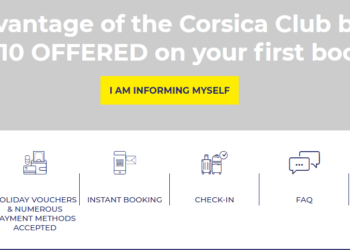In a world where change is the only constant, traditional education can feel like a slow-moving ship. Enter microcredentials—a game-changer for anyone looking to quickly build skills and enhance their career prospects. These bite-sized qualifications are designed to provide targeted learning without the lengthy commitment of a full degree program. As more professionals seek flexible and efficient pathways to skill development, platforms like Coursera have emerged as leaders in this space.
Imagine being able to learn from top universities and industry experts at your own pace, all while earning credentials that employers recognize. With the rise of remote work and digital transformation, having specialized knowledge has never been more crucial. Let’s explore how microcredentials are reshaping education and why Coursera might just be your best bet for leveling up in today’s competitive job market.
The Benefits of Microcredentials
Microcredentials offer a flexible approach to learning, allowing individuals to acquire specific skills in a short timeframe. This agility is perfect for busy professionals balancing work and personal commitments.
They are often more affordable than traditional degrees, enabling learners to invest in their education without incurring significant debt. The bite-sized nature of these programs means you can focus on what truly matters—gaining relevant experience that aligns with your career aspirations.
Another key benefit lies in the ability to showcase specialized knowledge. Microcredentials serve as tangible proof of your expertise, making it easier for employers to recognize your value.
Additionally, many microcredential programs evolve with industry demands. This ensures that the skills you learn remain current and applicable in today’s fast-paced job market. As industries shift and grow, so too do the opportunities presented by embracing this innovative form of education.
Microcredentials provide a swift route to skill acquisition. In just weeks, you can gain valuable expertise in areas like data analysis or digital marketing. This accelerated learning helps you stay relevant in a competitive job market.
Another significant advantage is the flexibility they offer. You can learn at your own pace and schedule, making it easy to fit education into your busy life. Whether you’re working full-time or managing family responsibilities, these courses adapt to your needs.
Affordability is also a key benefit. Compared to traditional degrees, microcredential programs often come with lower tuition fees. This means you can invest in your future without breaking the bank.
Many employers recognize and value these credentials as proof of specialized skills. Earning a microcredential from platforms like Coursera boosts your resume and demonstrates commitment to lifelong learning—a quality that stands out in any candidate pool.

The Popularity of Coursera’s Microcredentials
Coursera has taken the educational landscape by storm, particularly with its microcredentials. These bite-sized learning experiences attract a diverse audience eager for practical skills.
Professionals from various industries flock to Coursera’s platform. They seek quick ways to enhance their knowledge without committing to long-term programs. The appeal lies in flexibility; learners can study at their own pace and fit courses around busy schedules.
Moreover, partnerships with top universities and organizations add credibility. When users see names like Stanford or Google associated with a course, it instills trust and curiosity.
Microcredentials also fill gaps in traditional education. Many people want specific skills tailored to job market needs rather than broad degrees that may not align with current industry demands.
The rise of online learning platforms further fuels this popularity. As technology evolves, so does the need for ongoing education through accessible channels like Coursera.
The rise of microcredentials has transformed the landscape of skill development. More professionals are seeking ways to enhance their qualifications without committing to traditional degrees. Coursera stands out as a leading platform for this purpose.
Coursera’s microcredential offerings have gained significant traction in recent years. The platform collaborates with renowned universities and organizations, ensuring that learners receive high-quality education from credible sources. Courses cover various fields, from data science to digital marketing, catering to diverse interests and career goals.
What makes Coursera particularly appealing is its flexibility. Learners can study at their own pace while balancing work or personal commitments. This accessibility allows individuals around the globe to acquire new skills without geographical constraints.
Moreover, many employers recognize these credentials as valid proof of expertise. As companies prioritize practical skills over formal education in some sectors, having a microcredential can make candidates more attractive during hiring processes.
As online learning continues gaining momentum, platforms like Coursera will likely be instrumental in shaping future workforce trends. With an ever-expanding catalog of courses and specializations available at your fingertips, it’s no wonder so many people are turning towards microcredentials for career advancement opportunities.
How Coursera’s Microcredentials Differ from Traditional Education
Coursera’s microcredentials offer a flexible, targeted approach to learning that sets them apart from traditional education. Unlike degree programs, which can take years to complete, microcredentials focus on specific skills or topics. This allows learners to acquire knowledge quickly and efficiently.
Another key difference is accessibility. Coursera provides an online platform where anyone with internet access can engage with high-quality content from top universities and organizations worldwide. Traditional education often comes with geographical and financial barriers.
Microcredentials also emphasize practical application over theoretical study. Many courses incorporate real-world projects, enabling students to build portfolios that showcase their skills to potential employers.
Furthermore, the self-paced nature of these programs empowers individuals to learn at their own speed while balancing other commitments. This adaptability caters well to busy professionals seeking career advancement without the constraints of rigid schedules.
Coursera’s microcredentials present a fresh perspective on education that stands apart from traditional learning pathways. Unlike conventional degrees, which often take years to complete and come with hefty price tags, microcredentials are designed for quick skill acquisition. They allow learners to gain specific skills in a matter of weeks or months.
These courses focus on practical knowledge tailored to meet the demands of today’s job market. Employers increasingly value these bite-sized qualifications as they demonstrate an individual’s commitment to continuous learning and adaptability.
Furthermore, Coursera offers flexibility that traditional institutions may struggle to provide. Students can learn at their own pace while juggling other responsibilities, whether it’s work or family commitments. This makes education accessible for many who might otherwise find it difficult to pursue further studies.
Additionally, the collaboration between top universities and industry leaders ensures that the content remains relevant and up-to-date. This alignment with real-world applications gives learners a competitive edge when entering or advancing in their careers.
Microcredentials from Coursera empower individuals by providing them with valuable skills without overwhelming them with unnecessary coursework typically associated with degree programs. For those looking to enhance their professional profiles efficiently, this innovative approach is certainly worth considering.
Success Stories from Coursera’s Microcredential Programs
Many learners have transformed their careers through Coursera’s microcredential programs. These short, focused courses make skill acquisition accessible and practical.
Take Sarah, for instance. After completing a data science microcredential, she landed a job as a data analyst at a leading tech firm. Her newfound skills made her an invaluable asset to her team.
Then there’s James, who pivoted from marketing to UX design thanks to his specialization in user experience on Coursera. His portfolio caught the eye of recruiters looking for fresh talent.
These stories showcase how targeted learning can lead to impressive outcomes. Each participant brings unique experiences and aspirations but shares one common thread: the power of microcredentials in achieving professional goals. With real-world applications, these programs empower individuals to step confidently into new roles or industries.
Tips for Choosing the Right Microcredential Program on Coursera
Choosing the right microcredential program on Coursera can feel overwhelming, but a few strategies can simplify your decision. Start by identifying your career goals. What skills do you need to advance? Focus on programs aligned with these objectives.
Next, consider the reputation of the institution offering the course. Renowned universities often provide high-quality content and relevant certifications that employers recognize.
Look for reviews or testimonials from past students. Their experiences can give insight into what to expect and help assess if a particular program fits your needs.
Also, review the syllabus carefully. Ensure it covers topics that interest you and offers practical exercises or projects that reinforce learning.
Pay attention to time commitments and flexibility. Choose a program that accommodates your schedule while allowing you to engage fully with the material without feeling rushed.

The Future of Skill Development: Embracing Microcredentials
As the job market evolves, traditional degrees are not always enough. Employers increasingly seek specific skills that can be demonstrated quickly and effectively. Microcredentials offer a solution.
These bite-sized learning experiences focus on practical knowledge relevant to today’s industries. They bridge the gap between education and real-world application. With microcredentials, learners can adapt to changing demands without committing to lengthy programs.
Technology plays a vital role in this shift. Online platforms like Coursera make it easy for anyone to upskill or reskill from anywhere in the world. This accessibility democratizes education, allowing diverse populations to thrive.
Microcredentials also enable continuous learning—a necessity in our fast-paced society. Professionals can stay current with trends while showcasing their commitment to personal growth and development.
Embracing microcredentials could redefine how we approach career advancement and lifelong learning, making skill acquisition more dynamic than ever before.
Conclusion
The landscape of education is changing rapidly. Microcredentials are carving out a space where traditional models may fall short, making skill development more accessible and tailored to individual needs. As industries evolve, so too do the demands for specific skills.
Coursera stands at the forefront of this shift, offering diverse microcredential programs that cater to various fields and interests. The success stories from its users showcase how these programs can transform careers and open new doors.
Choosing the right program on Coursera involves careful consideration but pays off with potential career advancements. With ongoing growth in technology and innovation, embracing microcredentials will likely become increasingly vital in staying competitive in today’s job market.
As we move forward into an era focused on skill over conventional degrees, it’s clear that platforms like Coursera are paving the way for future learners to thrive. Prioritizing lifelong learning through microcredentials could be your key to unlocking new opportunities and achieving professional goals.
















